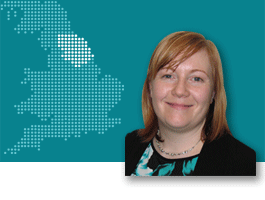 Corinne Settle, Programme Coordinator for Teaching and Learning SSAT, writes…
Corinne Settle, Programme Coordinator for Teaching and Learning SSAT, writes…
In April SSAT received funding from the Education Endowment Foundation (EEF) to test the impact of the Embedding Formative Assessment pack by Dylan Wiliam and Siobhan Leahy. This is a two-year professional development pack for schools and colleges that contains all the materials needed to run teacher learning communities over a two-year period.
With just three weeks to recruit, we reached out to our network of schools to offer the opportunity of being involved in the EFA project. In this short time, we received over 300 expressions of interest from schools and began the interview process.
As lead on the project, I have had the absolute privilege to speak with over 160 schools about the project and why they wish to be involved. With a tight interview schedule, I felt the next few weeks would be gruelling, but in fact, it was the exactly the opposite.

With each call, I listened to teachers, senior leaders and headteachers talk passionately about teaching and learning, and their key moral purpose to improve the life chances of their students.
I wanted to start this, my first blog, with a quote from a popular film; I started and then got stuck with a quote from Jerry Maguire (1996).
‘I began writing what they call a mission statement. Not a memo, a mission statement’
This is not a mission statement – this is me. I am easily swayed and influenced. I see new ideas and thinking in teaching and get inspired and excited, I want to and have to try every new toy in the shop.
I see new ideas and thinking in teaching and get inspired and excited, I want to and have to try every new toy in the shop
I embrace each one with the hope that it will really make a difference to the students I teach. I know I make a difference; I have kept every single note of thanks, every great teacher mug and teddy bear.
Nevertheless, I continue to search looking for answers.
I read effect sizes, and again I can feel the excitement and hope of making a difference spark in my brain. Feedback 1.13 (Hattie, 2009), so what do I need to do, how to I get there?
How do I take a number, turn it into reality, and ensure my students achieve their dreams… and amazing grades too. I know that feedback isn’t just what we say or write to our learners, but about how they respond, what they tell me and then how I respond to it.
It is the constant dialogue I have with students moment by moment.
There are rare times when I have time to stop and think, what do I know, I mean really know from my gut that makes the difference. I know that it’s the small changes I have made that have had the biggest impact and caused a snowballing affect in my practice.
I know that it’s the small changes I have made that have had the biggest impact and caused a snowballing affect in my practice
I have found moving to a classroom climate of ‘no hands up, except to ask a question’ led me to a real focus on the quality of questioning as I needed to drill down into students thinking to elicit and deepen their answers.
There was then a need to become comfortable with ‘wait time’ to allow students time to come up with these quality answers. All of these are changes in my classroom habits and changing habits is really hard, they are part of my automated systems that I have developed over many years.
But simply what do I know? I know that in every lesson that I try something new or tweak something old, I teach, I learn.
Formative assessment matters, it makes a difference to the students we care for
As I moved up the ladder of responsibility, I realised that ‘I’ is not enough. We need to look beyond our own islands as teachers and look to the difference ‘we’ can make.
If we all took this journey together, what would the cumulative effect be? Would we achieve the magical effect size of 1.13? How many lives would we make more of a difference to?
Now is the time to bring formative assessment (AfL) to the fore again. This isn’t only my message, this is the message I have heard from schools all over the country. Formative assessment matters, it makes a difference to the students we care for.
It’s time to revisit an old friend, embrace them and get to know them better, together. We teach, we learn.
Follow Corinne on Twitter: @CorinneSettle
Follow SSAT on Twitter: @SSAT
